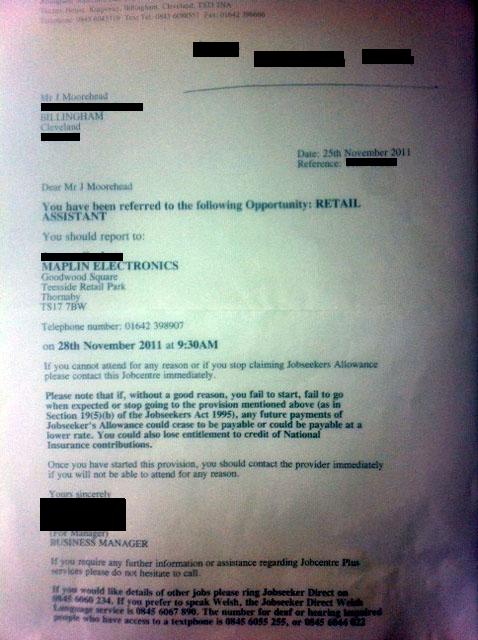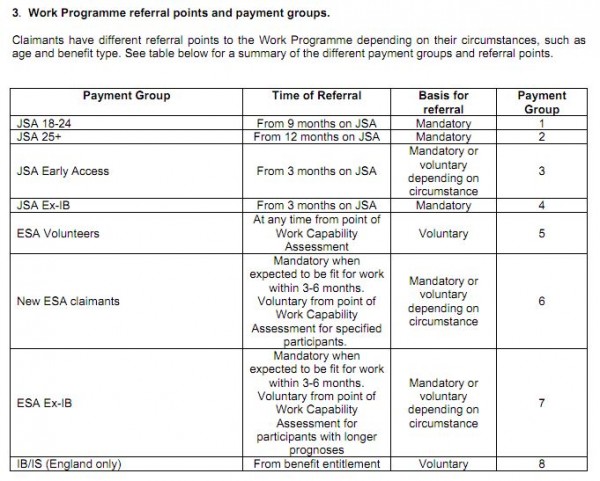The standard letter sent out by the Job Centre to people who have been told to attend work experience gives an extremely strong impression that there is no choice and that the claimant will lose benefits if they do not attend. The letter says:
Please note that if, without a good reason, you fail to start, fail to go when expected or stop going to the provision mentioned above (as in Section 19(5)(b) of the Jobseekers Act 1995), any future payments of Jobseeker’s Allowance could cease to be payable or could be payable at a lower rate. You could also lose entitlement to credit of National Insurance contributions. (Emphasis mine)
Although Chris Grayling and other ministers insist that the work experience scheme is voluntary, and that the claimant can withdraw in the first week, and point out that the above letter is sent to people after they have “volunteered” for the placement, the letter clearly states “If…you fail to start” which leaves no room for doubt that the placement is mandatory. Job seekers are also commonly led to believe in person by Job Centre advisors that the work experience is not optional. Channel 4 News interviewed several people who confirmed that they had been led to believe that they had no choice in taking work placements.
Cathy Newman of Channel 4 News confronted Chris Grayling with the evidence:
Grayling makes astonishing claims in the face of evidence. First he responds with misdirection and denial:
“It could be related to a scheme which has a training module attached.”
“Let’s be absolutely clear, the scheme is voluntary.”
“Cathy, I’m afraid that’s simply not true”
Worse, he tries to get very manipulative about this:
“I’m sure you’re not telling me that I’m not telling you the truth. I’m looking you in the eyes through the camera and saying to you this is a voluntary scheme.”
Except she IS telling him that. At the start of the interview Cathy Newman said:
“Either the letter is misleading or you’re misleading.”
Finally Grayling goes for claiming he hasn’t seen the evidence:
“Look, I haven’t seen the letter that you’ve got.”
However, as Cathy Newman tweeted after the interview, it was sent to him earlier in the day.
So Chris Grayling was ‘absolutely clear’ he hadn’t seen our job centre letter…but we sent it to his press officer at 1.56pm. Whoops!
— Cathy Newman (@cathynewman) February 28, 2012
What it boils down to is this. The scheme might technically be voluntary. However, if Job Centre advisers tell people that they have no choice, and if official letters state very clearly that you can lose benefit if you do not start the placement, and if job seekers are not told that they can opt out in the first week without penalty, if everyone across the UK is under the impression that the scheme is mandatory, then the scheme might as well be mandatory.
The original story: “No benefits if you don’t work for free at Maplins” [Channel 4 News]
New row erupts over unpaid work placements [The Independent]



